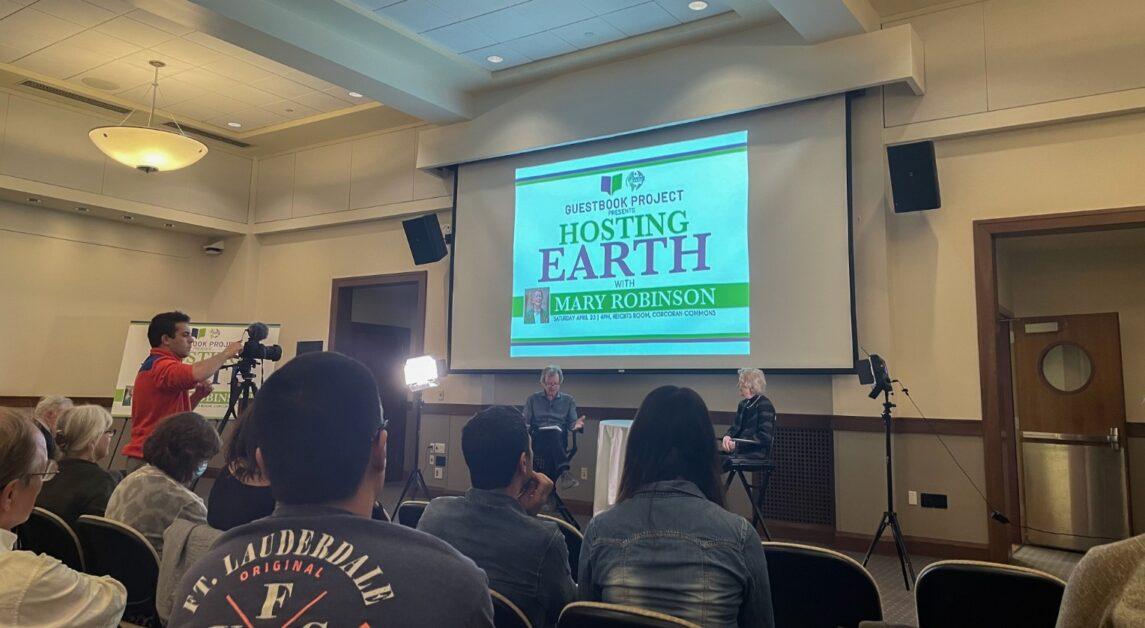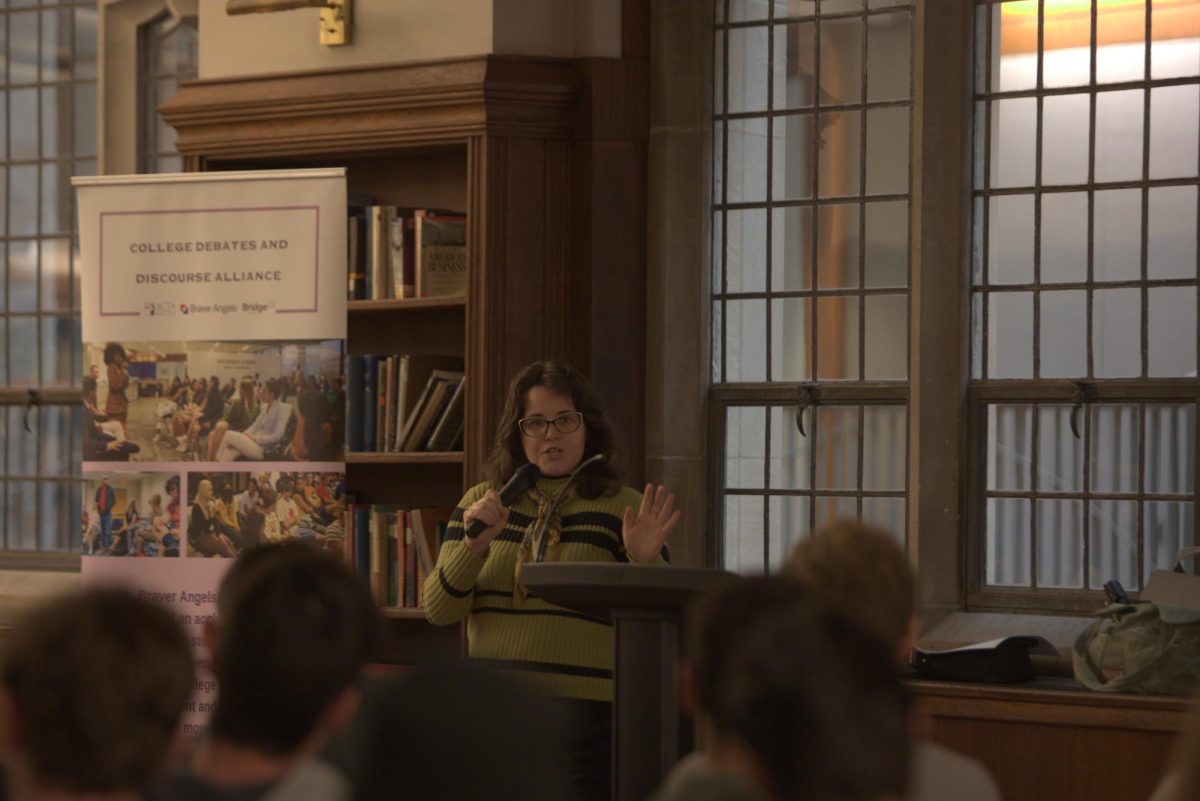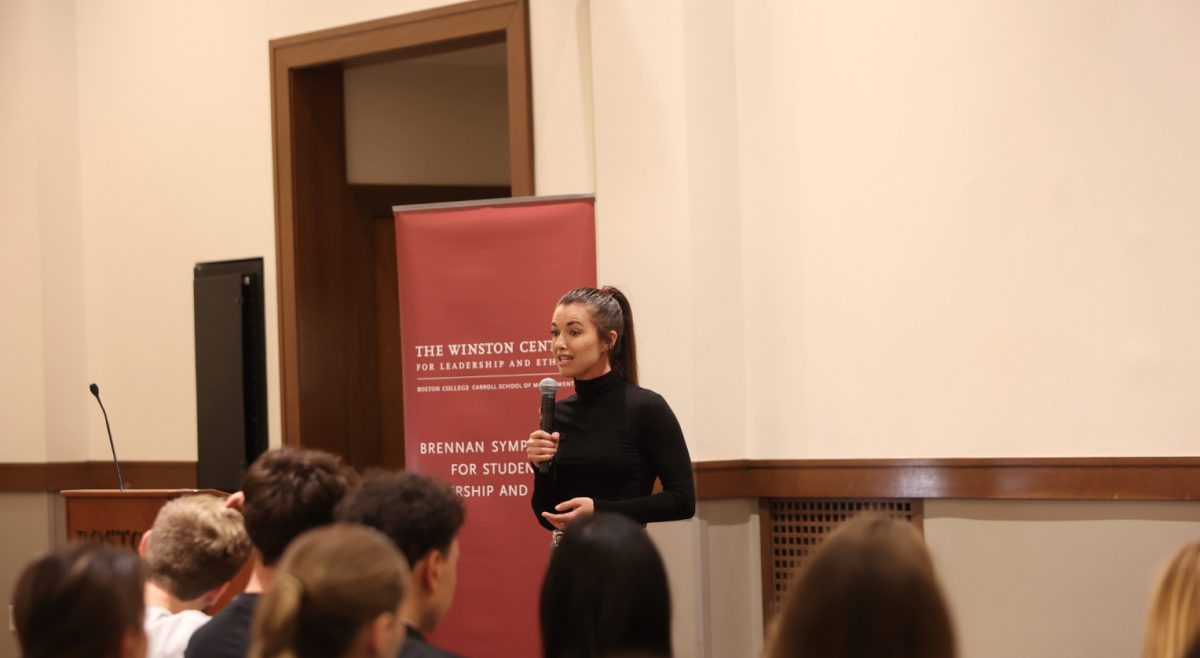“Climate change is a man-made problem and requires a feminist solution,” Robinson said. “It is the way in which we have to address the issues. It’s problem solving and listening to all voices.”
Robinson, who also served as the United Nations Special Envoy for Climate Change from 2014 to 2015, delivered the keynote speech on the climate crisis and ecological hospitality during the conference, which also included panel discussions and art performances.
During the conference, Robinson advocated for BC and other universities to divest from fossil fuels.
“I think universities should be leading on this issue in every sense because there is a crisis,” Robinson said. “I have for a long time supported the idea of universities including my alma mater, Harvard, divesting.”
When discussing how to address the climate crisis, Robinson said it is important to integrate the stories and perspectives of those who are most affected.
“I came to understand that we weren’t able to grasp the climate story because of the way we were learning,” Robinson said. “We have to move to storytelling.”
Robinson said climate change causes major injustices, especially in the developing world, which is already suffering from generations of poverty and other social issues.
“I learned that [climate change] was impacting African countries far more,” Robinson said. “Then I learned that small island states, Indigenous peoples, and the poorest parts of richer countries were also suffering, and they were the least responsible for [the climate crisis].”
As the first female president of Ireland, Robinson, elected in 1990, spoke extensively about gender inequality around the world and how the climate crisis is advancing this inequality.
“Eighty percent of the food in the developing world is produced by women, yet they own much less of the land and get much less access to credit,” Robinson said.
Robinson said her role in the male-dominated world of politics inspired her passion for bringing women leaders together to address the climate crisis.
Robinson also said her experience as the U.N. Special Envoy for Climate Change helped her recognize the full extent of the climate crisis and its effects.
“[The scientists] made it clear that in that time, bad things will probably happen,” Robinson said. “First of all, the coral reefs will probably disappear entirely. Secondly, the Arctic ice will disappear and the permafrost will melt. Permafrost is very substantial.”
Even with these dire predictions, Robinson said there were significant achievements at COP26—the U.N.’s annual climate change conference where participants pledged to reduce their contributions to global warming.
“The interesting thing—which is positive about COP26 despite the fact that the [countries’] pledges are not enough and we’re not on target yet—is that everybody was talking the language of aligning with the 1.5 degrees celsius and that’s really important,” Robinson said.
According to Robinson, there is an international goal to limit global warming to 1.5 degrees Celsius. Even a slightly higher temperature, Robinson said, could have serious consequences.
“The most significant step that was taken [to limit global warming] was done because of pressure from climate justice,” Robinson said. “Pressure from the small island states, Indigenous people, and young people, who marched in the street in Paris. The mantra was ‘1.5 to stay alive.’”
Robinson concluded her talk by encouraging people to change how they think about the climate crisis.
“Imagine the world we need to be hurrying towards,” Robinson said. “We have to get a real feeling of wanting to get there.”
Update (4/28/22, 6:14 p.m.): This article was updated to include a quote about divestment.



















